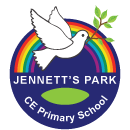Spellings
From Year 2 onwards, the school uses a set spelling scheme: No Nonsense Spelling, which is based on the requirements set out in the National Curriculum, where there is a high expectation that pupils will learn many increasingly complex words and spelling rules.
There is little evidence, though, that the traditional practice of learning spellings (usually 10) at home and being tested on them (usually on a Friday) is effective. Consequently, we have revised our teaching and testing of spellings.
Within this scheme, learning spellings is built into each six-week block, and is taught a minimum of twice a week, for two x 15-minute sessions. Within the sessions, a range of strategies for learning spellings are introduced and practised. These words are frequently revisited within lessons, and should also be revisited at home, to further embed the correct spelling and rules, so that the children will be able to apply them confidently within their writing consistently throughout the year.
Within this scheme, pupils can choose the strategies they find most effective for learning different words, and to focus on set words that they have identified that they need to practise. This minimises the chances of children having to practise words that they already know how to spell.
Learning at home needs to be an extension of the practice in school. The children should practise the words and the spelling strategies being taught in school. With this in mind, home learning for spellings will look as follows:
Within Year 2,
- After Christmas, set spellings will be recorded in spelling books that the children will take home, so that they can practise these spellings.
Years 3-6:
- Children will record in their home spelling books up to 5 spellings a week that each pupils feels that they need to practise. These spellings are dependent on your child, and how confident they feel with these spellings- some weeks they may record less spellings than others, dependent on the rules and spellings that week.
From Year 2-6, the children will be tested on the spellings and words studied. This will not be weekly. Instead, it will be repeated over the year, to revisit and ensure that the children have learnt these spellings. Please continue to practise all the spellings that they bring home, by revisiting previous spellings. This will help to embed the words for the children.
Within school, the children use a variety of methods to practise their spellings. The children should use their home spelling books to assist with this practise:
Your child may have a few set strategies that they prefer to use. They do not have to use all the strategies listed or mix them up- whatever they feel helps them learn most effectively.
When reading out the spellings for your child, try to provide the spelling in context, to further familiarise the child with the word (we do this in school). For example:
- Provide the spelling in a given sentence and repeat it, so the child knows the word to spell (they do not have to write the whole sentence out on this one).
- The word is library
- I went to the library to borrow a new book.
- The word is library.
- Ask the children to create a sentence for each word:
- The word is vegetable- please write a sentence that includes the word vegetable.
- Ask the child to write out the sentence that you have said, which includes the spelling word.
- Write out the following sentence:
- The shortest month of the year is February.
- I will repeat: The shortest month of the year is February.
- Write out the whole sentence.
We appreciate your collaboration in helping your children learn their spellings, and if you do have any questions, please contact your class teacher.
